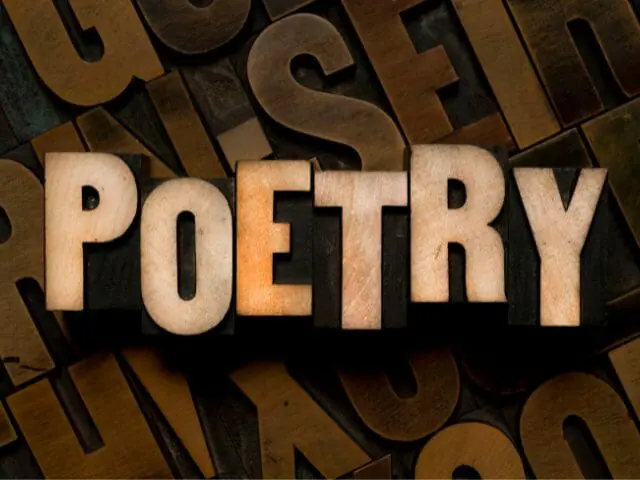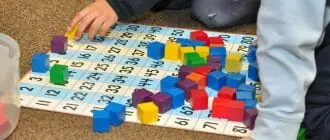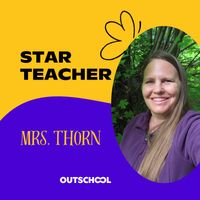
- Mar 24, 2021

Essays in 6th Grade: A Basic Format that Elevates the Standard 5-Paragraph Structure

6th grade is such a funny year. Funny haha and funny weird. Student writing levels are all over the map. You will have students coming to you writing on a very elementary level, still needing loads of help with grammar and paragraph formation. Then, you will have students ready to write critique pieces and analyses. How do you navigate this? Read to find out more!
Give Them a Format...to Start
I've learned that 6th graders still need format . They still need structure. They still need checklists. As much as I loathe limiting them in this way, I think it is very reassuring to them. That's not to say you can't tweak for the strong writers, but I do still feel they need it.
For my students in particular, I like to let them dabble in looser formats of non-fiction writing in other ways. They do book reviews , a debate , podcasting , etc. They are offered choices in reading responses to non-fiction reading and analysis, too. My classes actually write digital eBooks, too. But on the whole, they are expected to write two essays with a very similar format twice a year.
Bye-Bye 5-Paragraph Essay
Alright, so this is kind of not totally true. My students do end up writing 5 paragraphs, but that typical structure we all commonly know, I navigate away from. I think it's a fine format, but as they get into middle school they are expected to compare a LOT more and not focus on one specific topic . They are expected to follow through on a thread, a claim, a theme, an idea and how it is shown in various sources. And this is super new for them, analyzing various sources on the same concept. They really need a structure for this.
So, the typical essay, before they get to me, goes like this, and it is a good precursor:
Introduction that states your thesis and 3 major reasons to support your claim.
Conclusion that looks a whole lot like the introduction.
This format does not allow analysis of multiple sources and if you throw in other sources, it gets messy. Instead, I gear my students to focus on each source separately, then comparing them all.
The Format that Works (Research and Literary Analysis)
First of all, it's important to know what essays I actually do with my kiddos. I do a research unit. This changes almost every year, but typically they choose some kind of topic, I group them based on their topic choice. First, they do research (non-fiction skills) using a book, article, and video. They then use those sources to write an essay on a claim they make based on their topic. Later, they make eBooks in groups based on their topic.
The other essay I do is Literary Analysis . This follows a dystopian unit . They read a dystopian book in book clubs. Then, I have them choose from a short list of short stories that are dystopian. Lastly, we watch the movie The Truman Show . (This year I had them watch "The Scarecrow" on YouTube since we were hybrid due to the pandemic). They then determine a theme that is true for all three sources and write an essay based on that theme.
This essay format works for both of these essays. So here it goes!

Introductory and Conclusion Statements
In a traditional essay, students have to write a hook, their claim/thesis, and essentially ANOTHER three sentences that state what their essays will be about. In my opinion, all of this is completely unnecessary. How many times do you read introductions in books? Okay, real avid readers do, but in reality many people don't. So for these, I tell my students to get right to the point .
Here's what should be in their introductory and conclusion statements:
A statement that introduces the topic. (This is a hook of some kind. I sometimes tell them to start it with "in our world..." or "in our lives..." and something that relates to their topic. Or just starting it with their topic and explaining what it is.)
The claim/thesis.
A statement that references there are differences and similarities in the sources. (For example: "[Title of sources] support this claim in different and similar ways." That's it.)
This all ends up being 2-3 sentences.
Topic Sentences
I have my students start their essay prep with topic sentences. This helps them get a sense of where their essays will go.
The big thing to understand here is how the paragraphs are set up .
Body #1 : Focus on source #1 and how it shows claim/thesis.
Body #2 : Focus on source #2 and how it shows claim/thesis.
Body #3 : Focus on source #3 and how it shows claim/thesis.
Body #4 : Focus on how ALL SOURCES show the claim/thesis in the same way.
So they start with creating topic sentences for those paragraphs. Each topic sentence is set up like this. The last topic sentence would start with "all sources..." instead of "source title".:

Body Paragraph Format
In the picture you see below, I have specific colors for specific aspects of body paragraphs. ALL body paragraphs follow this format in that exact sequence/order. I will be completely honest, I don't give them a ton of wiggle room since this is pretty new to them. However, my stronger writers dabble in mixing evidence stems and elaboration stems around.

Their paragraph starts with the topic sentence they already prepared. From there, the next sentence begins with an evidence stem . Here are a few examples of evidence stems:
According to the text,
The author states,
In [title],
Right after the evidence stem, in the same sentence, they add their text detail to support their topic sentence. I encourage them to quote exactly from the text for most text details. They can paraphrase, too, but should really try to get exact lines.
In regards to quoting, I also mention to them not to quote plop . I made this up. I plan on making a product for this at some point. A quote plop is bad . It's when students take a line from the text and just plop it in their essay. I show them how to break up the quote from the text with their own words.
So, a first sentence may look like this: According to the text [evidence stem, highlighted green] , when Luke was hiding due to being a third child, "they took the woods away" , [text detail with context, a.k.a. not just plopping the quote in the sentence, highlighted yellow].
Directly after that sentence should be an elaboration stem with an elaboration explaining how the text detail shows their claim/thesis. Students highlight this entire sentence in blue and their claim within it dark blue. Here are some elaboration stems:
This proves [claim] because...
This shows [claim] because ...
After that they do the same process two more times; two more text details with elaborations. Lastly they do a closing sentence .

Comparison Paragraph: This is set up almost exactly the same, except the focus is on how ALL the sources show the claim in the same way. They then provide a NEW text detail from each source to prove how the claim is being shown similarly in each.

Once all their body paragraphs are written, I have them go review their introductory and conclusion statements, put everything into a final draft and leave the highlights in the essay . This helps them visualize all the components and helps me grade!
For revision, the focus is on not quote plopping, being sure their details support their thesis, changing up the wording of claims/theses, and rearranging for strong writers.
Bottom Line
While this is very limiting for some, it is super helpful for struggling writers. Having that checklist and having the highlights helps students visualize what they need to compare sources in an essay format.
I'd say it'd be great to introduce this in 6th and by 8th, they can certainly make these more interpretive, creative, and unique.
You can find a lot more detail about this in the product below . What you see here is only a taste. This contains a full sample essay, checklists, tips, and more. You can also edit it to meet your needs.

************
Want a custom bundle from me click below.

Teachers Pay Teachers Store
Recent Posts
Text Structure Explanatory Writing: Creating a Dodecahedron
Why I Don't Do a Daily Reading Log: What I Do Instead
Online Research, Note-Taking, & Argument Essay: Student Choice Driven
Really interesting - thank you!!
This exactly the kind of thing I've been looking for, and even better! I love your approach and it's so well explained. I couldn't disagree more with any of the negative feedback to this article. I think it's perfect for my style of teaching and my standard of writing. Most of all, the way you explained this and broke it down into small steps will make it so achievable for even lagging students to develop great writing skills and feel confident in the process! You nailed it. Thank you so much!
I read all the essay writing format instructions. All the points are useful for any kind of essay writing. But at the age of high-level essay writing learners need to be essay writer experts like the 6 Dollars Essay Website , ready to do professional essay writing for any essay grade.
This is beyond me and I teach HS English. Where does this lady teach, at Princeton? I do not know any 6th grader that does this or would understand this. I see why so many of our young people have become disinterested in the learning process. I also see why so many teachers quit. The profession is stale, boring, and antiquated. This article was not fun to read and I'm thinking this new 5 paragraph writing style would be a drag for the average ela teacher to teach.
. In the blog post, I mention the various types of writing I do with students. I also have other blog posts that discuss these other formats. This is not the end all be all. In my over a decade experience with teaching writing, having a structure helps struggling writers. This is not a writing style. This a format for one type of writing. As teachers, we should be offering all types of formats, especially with younger writers who are still learning how to write.
6th grade writing
by: Hank Pellissier | Updated: August 4, 2022
Print article

This year, your sixth grader should learn to use precise language, the right pronouns, and high-quality sources for research. Public presentations are also a nerve-wracking but important skill highlighted this year. Read on to learn the key sixth grade writing skills your child should learn this year.
Introducing argument writing
Developmentally, sixth graders are entering a rebellious phase. Luckily, all this attitude has an academic outlet: argument writing . Your tween will write persuasive essays that promote their bold opinions with organized logic, backed by evidence from carefully researched, respectable sources. ( Wikipedia , The Onion , and National Enquirer won’t qualify, but Wikipedia does often link to sources at the bottom of their entries that may be acceptable.)
Your 11- or 12-year-old will also write formal essays that explain complicated topics with precise information. They’ll start with intriguing introductions, and then present their research in a clear, organized way. They will use quotes, facts, definitions, compare-and-contrast statements, cause-and-effect statements, graphics (e.g., charts, graphs), subject-specific vocabulary, and multimedia. It will all be formatted (e.g., using headings, subheadings, and bullet points), to make their points clear. They’ll end with concluding paragraphs that recap their main points.
“ To put it another way, Mommy, there is compelling evidence that I need another scoop of ice cream. ” This grown-up language sounds amusingly hoity-toity in squeaky voices, but don’t laugh when your child attempts it in daily conversation. Indeed, it is good practice for their writing.
Incredibly, what happened next was..
Storytelling is a fun part of sixth grade writing. This year, kids practice narrative writing in fiction and nonfiction papers. They learn effective ways to select their narrator, characters, setting, dialogue, descriptions, and conclusion. They work to make plot sequences seem natural. To really make their stories sing, kids should use specific details, precise language, and transition vocabulary (think: After nightfall or When she awoke ) that guides readers from one setting or plot point to another. Don’t be surprised if your shy bookworm starts writing a trilogy.
If at first you don’t succeed
Grit. Determination. Perseverance. Ernest Hemingway rewrote the last page of one of his novels 39 times. Rewriting and editing both teach kids discipline and determination. They are required to plan before they write, and then plan some more as their draft develops. They’re encouraged to outline before they start writing. They draft and redraft. They will revise certain parts and maybe restructure their entire paper. Then they will edit, possibly rewrite, and re-edit. At every turn, they’re encouraged to try new approaches. This isn’t obsessive redundancy; it helps students practice thinking about what they’re really, truly trying to say and then use their writing skills to convey their thoughts clearly and exactly.
Command of the keyboard
Writing nowadays often means typing . Sixth graders accelerate their hand-eye coordination as they evolve from hunt-and-peck slowness to rat-tat-tat-tat-tatting at a furious pace. The goal is for sixth graders to be able to sit and type three pages in a single sitting. Additionally, kids are taught online interaction and collaboration (e.g., emailing their work to each other, sharing Google docs, and adding suggestions and comments to each other’s work).
My research reveals…
Sixth graders get writing assignments that require research. To answer questions like What famous historical character do you admire? What’s your favorite invention? What endangered species do you worry about the most? , your young detective will read thick reference books and print periodicals at the library and digital data online (yes, often via Google). Students learn to evaluate the credibility of sources . Is National Lampoon as legitimate as Encyclopedia Britannica ? No. Using evidence, they compile information to write reports. They’ll learn to paraphrase what they’ve read, synthesize new thoughts, and use quotations to share information without plagiarizing.
Novel approach
Is Harry Potter more emotionally conflicted than Katniss Everdeen? Sixth graders sharpen their critical thinking skills by doing literary analysis. They’ll analyze poems, stories, historical novels, and nonfiction books. Kids learn to compare and contrast topics and themes. They’ll do this, for example, by discussing the consequences of prejudice in Roll of Thunder, Hear My Cry and in Harriet Tubman: Conductor on the Underground Railroad or by explaining how nature directs the plots of The Secret Garden and The Island of the Blue Dolphin . In nonfiction, sixth graders learn to divide an author’s statements into facts supported by evidence versus opinions. For example, was the Great Houdini truly “the world’s greatest magician” or is this an opinion? After all, David Copperfield walked through the Great Wall of China.
Pronouns: not just me-me-me all the time
Grammar isn’t easy, especially for 11- and 12-year-olds. Pronoun usage can be particularly tough. Kids learn about proper pronoun case . What’s that? Subjective case refers to pronouns used as subjects (I, you, he, she, it, we, they). Objective case indicates pronouns used as objects (me, you, him, her, it, us, they). Possessive case conveys ownership (my, mine, your, yours, his, her, hers, its, our, ours, their, theirs). Using pronouns incorrectly can leave the writer (or speaker) looking unintelligent. For example, Us and her carried apples over to yous big barn is neither proper nor pretty.
Mistakes in pronoun person are common among this age group. To correct this, your child needs to loyally stick with the “person” they started with. No switching from first person (I or me) to second person (you), or vice-versa: When I go to school, you should have your homework done, or When you go to school, a person should have his homework done . (Hint, that second example goes from second person to third person.) Both switches are incorrect and can create confusion.
Pronoun number is also crucial. If the subject indicates a plural quantity, the related possessive pronoun needs the identical number. Here’s an example of this common error: All of the school girls took her umbrella. (It should be their umbrellas) . Vague pronouns are also a no-no. Take the sentence: Alice put a vase with a red rose on the desk, and sold it. What was sold: the vase, the rose, or the desk? We don’t know because it, used here, is too vague.
Sentences, spelling, punctuation
Sixth grade writing raises the bar when it comes to sentence structure. Kids are expected to vary their sentences by alternating the length and structure to keep their writing interesting.
When it comes to spelling, many sixth graders know that spelling rules in English are finicky and have many exceptions. Kids learn to spell odd English words correctly, with silent letters ( island, crumb ) and bizarre combo consonants ( cough, pheasant ). As such, spelling is best learned through practice and, eventually, by memorizing. If your child gets frustrated spelling words like climb or plumbing , let them know that Theodore Roosevelt, Andrew Carnegie, and a committee of concerned citizens tried to simplify English spelling more than a century ago — sadly, to no avail.
Finally, as their writing becomes more advanced, sixth graders tend to use commas, parentheses, and dashes to set apart phrases and clauses. You can help by reviewing these sentences and making sure the punctuation is placed correctly.
It’s all about presentations
In sixth grade, kids will read their writing aloud to classmates. As they read, they’ll be expected to make eye contact, pronounce their words clearly, and speak loudly enough to be heard by the entire class. They’ll share their arguments, research papers, projects, and literary efforts, which will often be accompanied by visual displays, music, audio, charts, and slides. Your child may be nervous before these presentations, but hopefully your child will be empowered by the experience.
Homes Nearby
Homes for rent and sale near schools

6 ways to improve a college essay

Quick writing tips for every age

Writing on the wall
Why parents must teach writing
Yes! Sign me up for updates relevant to my child's grade.
Please enter a valid email address
Thank you for signing up!
Server Issue: Please try again later. Sorry for the inconvenience

How to Write a Sixth-Grade Essay

How to Write a Fifth-Grade Essay
Completing an essay for a sixth-grade writing assignment can be accomplished within only a few hours of your time. The five-paragraph format is commonly used in sixth grade. This format contains the introduction, three body paragraphs and a conclusion. By writing an essay correctly during sixth grade, you will be preparing for more in-depth writing in years to come, as you continue your education through high school and even college.
Write an introductory paragraph for your essay, which will include a thesis statement and three to five sentences that support it. A thesis statement will describe the basic point that you are trying to get across in your paper. The remaining sentences should act as an outline for the rest of your paper.
Write out the next three paragraphs, which are the body of the essay paper. Make your strongest claim to support your thesis statement in the first body paragraph. The second should be the next strongest, and the third should be the final part of your argument. Be sure to use strong verbs in the supportive sentences to reinforce the thesis statement, for this is one of the capabilities you will be expected to exhibit in your sixth-grade writing development. Keeping a consistent voice within the body paragraphs, as well as the rest of the essay, is also another ability that sixth-grade teachers are going to be looking for when grading. Correct transitions between the paragraphs will also show your writing skills to your teacher as well. These paragraphs should also be three to five sentences each.
Finish your sixth-grade essay by writing the final paragraph, which is its conclusion. Summarize the statements made in the body paragraphs to reiterate the thesis statement made in the first one. Persuade the reader to see your view on the topic, based on the points made throughout the piece, and indicate that the essay is reaching its succession by making a closing statement.
- Revise a draft of the essay to evaluate the word choices, substituting with vocabulary you have learned during your spelling exercises, before making a final copy that will be turned in to your teacher.
- Comparing and editing drafts before writing the official version is a commonly taught part of the sixth-grade curriculum and will help make for a better final essay overall.
- Sixth-grade students will also have to actively partake in peer reviews, so have another student read your drafts to ensure the essay has a natural flow. Another perspective may bring certain things to your attention that you may not notice on your own.
Related Articles

How to Introduce a Research Paper Sample

How to Write an Introduction to an Analytical Essay

What Is a High School Level Narrative Paragraph?

How to Write a One Page Essay

How to Write an Introduction to a Reflective Essay

How to Write an Essay About a Novel
How to convert your gpa to a sat score.

Guidelines for a Reflection & Summary Paper
Based in Florida, Robert Ceville has been writing electronics-based articles since 2009. He has experience as a professional electronic instrument technician and writes primarily online, focusing on topics in electronics, sound design and herbal alternatives to modern medicine. He is pursuing an Associate of Science in information technology from Florida State College of Jacksonville.
6th Grade Essay Prompts: A Comprehensive Guide
By: Author Paul Jenkins
Posted on August 2, 2023
Categories Writing , Education
As a 6th grader, you are at an exciting stage of academic and personal growth. One of the most important skills you’ll develop during this time is essay writing.
Essay writing is an essential skill that will help you communicate your thoughts and ideas effectively. It will also help you develop critical thinking skills, research skills, and creativity.
Essay writing prompts are a great way to get started with essay writing. They provide you with a topic or idea to write about, which can be helpful if you’re not sure what to write about. There are many different types of writing prompts, including narrative, descriptive, persuasive, and expository.
Each type of prompt requires a different approach, so it’s important to understand the different types of prompts and how to approach them. With the right guidance and practice, you can become a confident and skilled essay writer.
Key Takeaways
- Writing prompts are an excellent way to improve your essay writing skills.
- There are many different types of writing prompts, each requiring a different approach.
- With practice and guidance, you can become a confident and skilled essay writer.
33 6th Grade Essay Prompts
Here are 33 essay prompts for 6th grade students:
1. Write about a time you tried something new. What did you learn from this experience?
2. Describe your ideal day. Where would you go, what would you do, and who would you be with?
3. Who is someone you admire? Why do you look up to this person?
4. What is your biggest accomplishment so far in life? Why does it make you proud?
5. What is the most important lesson you’ve learned in school? Explain.
6. What do you want to be when you grow up? What steps will you need to take to achieve this goal?
7. If you could switch places with anyone for a day, who would it be and why?
8. What is your favorite book or movie? Describe the plot and explain why you like it.
9. Describe a challenging situation you’ve faced. How did you handle it and what did you learn?
10. What is one thing you would change about your school? Explain why.
11. What is the most amazing place you’ve ever visited? Describe what you saw and did there.
12. What personal qualities make someone a good friend? Describe a friend who has these qualities.
13. Explain three goals you have set for yourself this year. Why are they important to you?
14. If you could give advice to a younger sibling or friend, what would you say? Why?
15. Describe your favorite holiday tradition. Why is it meaningful to you?
16. What is your favorite subject in school? Explain why you enjoy it.
17. Describe your dream vacation. Where would you go and what would you do?
18. What is a cause you care about? Why is it important to you?
19. What challenges do tweens/teens face today? How can they overcome them?
20. What is one thing that makes you special? How does it impact your life?
21. Describe an act of kindness you did for someone. How did it make you and the other person feel?
22. What is your favorite memory with your family or friends? Why was it meaningful?
23. What is your dream job when you grow up? Describe what you would do.
24. What is a time you made a mistake or failed at something? What did you learn?
25. What are you most proud of about yourself? Explain why.
26. What is your favorite thing to do for fun? Describe why you enjoy it.
27. Pick an inspiring quote. Explain what it means and why it inspires you.
28. Describe a time you stood up for someone else. What motivated you to help them?
29. What are some small things people can do to make the world a better place? Give specific examples.
30. What is one goal you have for improving yourself this school year? Why is this goal meaningful to you?
31. Describe the cover of a book that hasn’t been written about your life. What would the title and imagery represent?
32. What makes you laugh? Describe something funny that happened to you recently.
33. What is one thing you are looking forward to in the future? Why does it excite you?
Understanding Essay Writing
If you’re a 6th grader, you’re just starting to learn about essay writing. Essays are a way to express your thoughts and ideas in a structured way. They can be fun to write, but they can also be challenging. In this section, we’ll cover the basics of essay writing to help you get started.
The Three Parts of an Essay
Every essay has three parts: the beginning, the middle, and the end. The beginning is where you introduce your topic and give some background information. The middle is where you present your arguments and evidence. The end is where you summarize your points and give your opinion.
Writing Skills
To write a good essay, you need to have good writing skills. This means you need to be able to write clearly and concisely, use proper grammar and punctuation, and organize your thoughts in a logical way. If you’re not sure where to start, try reading some essays by other writers to get a sense of how they structure their writing.
Essay Writing Process
The process of writing an essay can be broken down into several steps. First, you need to choose a topic. This can be anything from a personal experience to a current event. Once you have your topic, you need to do some research to gather information and evidence to support your arguments.
Then, you need to organize your thoughts into an outline. This will help you stay on track and make sure you cover all of your points. Finally, you can start writing your essay. Remember to start with a strong introduction, use evidence to support your arguments, and end with a clear conclusion.
6th Grade Writing Prompts
If you’re looking for some ideas to get started with your essay, try some of these 6th grade writing prompts:
- What is your greatest aspiration?
- What do you want to be when you grow up? How will you get there?
- What challenges do immigrants in our country face? What unique challenges do they face living in a new country?
- What is the most important lesson you’ve learned in your life so far?
- Describe a time when you had to make a difficult decision. How did you handle it?
Remember, the key to writing a good essay is to stay organized, use evidence to support your arguments, and end with a clear conclusion. With practice, you’ll become a great essay writer in no time!
Types of Writing Prompts
As a 6th grader, you will encounter different types of writing prompts. Understanding the different types of prompts will help you prepare for the challenges ahead and develop your writing skills. Here are some of the most common types of writing prompts:
Narrative Writing Prompts
Narrative writing prompts require you to write a story or describe an event from your life. These prompts may ask you to write about a personal experience, a fictional story, or a historical event. Narrative writing prompts allow you to use your imagination and creativity to develop characters, plot, and setting.
Expository Writing Prompts
Expository writing prompts require you to explain or describe a topic. These prompts may ask you to write about a process, a cause and effect relationship, or a comparison between two things. Expository writing prompts help you develop your analytical and critical thinking skills.
Creative Writing Prompts
Creative writing prompts allow you to explore your creativity and imagination. These prompts may ask you to write a poem, a short story, or a script for a play. Creative writing exercises help you develop your writing style and voice.
Research Writing Prompts
Research writing prompts require you to conduct research and write an informative essay. These prompts may ask you to write about a historical event, a scientific discovery, or a social issue. Research writing prompts help you develop your research skills and learn how to cite sources.
Reflective Writing Prompts
Reflective writing prompts require you to reflect on a personal experience or a topic. These prompts may ask you to write about your feelings, thoughts, or opinions. Reflective writing prompts help you develop your self-awareness and critical thinking skills.
Procedural Writing Prompts
Procedural writing prompts require you to write instructions for a process. These prompts may ask you to write about how to make something, how to do something, or how to solve a problem. Procedural writing prompts help you develop your organizational and communication skills.
Informational Writing Prompts
Informational writing prompts require you to write an informative essay about a topic. These prompts may ask you to write about a historical event, a scientific discovery, or a social issue. Informational writing prompts help you develop your research and writing skills.
In conclusion, understanding the different types of writing prompts will help you prepare for the challenges ahead and develop your writing skills. By practicing different types of prompts, you will become a more confident and knowledgeable writer.
Developing Writing Skills
In 6th grade, students are expected to have developed basic writing skills, including grammar, punctuation, and sentence structure. However, developing these skills is not enough to become a good writer.
To become a creative and critical writer, students need to practice writing regularly and be motivated to do so.
One way to motivate students is by providing them with interesting and thought-provoking writing prompts. These prompts can help students explore their thoughts, feelings, and ideas and develop their writing skills.
Additionally, writing prompts can help students develop their critical thinking skills by challenging them to think deeply about a topic and express their thoughts clearly.
To develop writing skills, it is important to practice regularly. Encourage students to write every day, even if it is just a few sentences. You can also assign longer writing assignments, such as essays or research papers, to help students improve their writing skills.
In addition to regular practice, it is important to provide students with feedback on their writing. This feedback should be constructive and focus on areas where the student can improve. Encourage students to revise their writing based on feedback and to ask for help if they are struggling.
Overall, developing writing skills takes time and practice. By providing students with interesting prompts, regular practice, and constructive feedback, you can help them become confident and knowledgeable writers.
Topics for Writing Prompts
When it comes to writing prompts for 6th graders, there are a variety of topics that can inspire creativity and help students develop their writing skills. Here are some ideas for different types of writing prompts that can be used in the classroom.
Personal Experiences
One type of writing prompt that can be effective for 6th graders is a personal experience prompt. These prompts ask students to reflect on their own lives and write about a specific memory or experience. For example, you could ask students to write about their favorite book, a memorable experience they had with their family, or a surprising thing that happened to them.
Imaginative Scenarios
Another type of writing prompt that can be fun and engaging for 6th graders is an imaginative scenario prompt. These prompts ask students to use their imaginations to create a story or situation. For example, you could ask students to write about what their future self might be like, what their dream career would be, or what a new holiday they invent might look like.
Current Events
Writing prompts that are related to current events can help students develop their critical thinking skills and engage with the world around them. For example, you could ask students to write about a social media trend that is popular right now, or to reflect on the civil rights movement and its impact on society.
Historical Events
Finally, writing prompts that focus on historical events can help students develop a deeper understanding of the past and its relevance to the present. For example, you could ask students to write about a historical figure they admire, or to reflect on a field trip they took to a historic site. You could also ask students to imagine what it would be like to be the oldest person they know, and to write about their life experiences.
Overall, there are many different types of writing prompts that can be used to inspire creativity and help 6th graders develop their writing skills. By using a variety of prompts that focus on personal experiences, imaginative scenarios, current events, and historical events, you can help students explore different topics and find their own unique voice as writers.
Writing Techniques
As a 6th grader, you will be expected to use various writing techniques to create engaging and informative essays. Here are some techniques you can use to make your essays stand out:
When writing an essay, you can use the plot technique to create a storyline that keeps your readers engaged. You can use the plot structure to organize your essay into a beginning, middle, and end. In the beginning, introduce your topic and provide some background information. In the middle, present your arguments and provide supporting evidence. In the end, summarize your arguments and provide a conclusion.
Descriptive
The descriptive technique can help you create vivid images in the minds of your readers. You can use descriptive language to paint a picture of your topic, such as describing the sights, sounds, and smells. This technique can be especially useful when writing about a place or a person.
Compare and Contrast
The compare and contrast technique can help you analyze two or more things and highlight their similarities and differences. This technique can be useful when writing about two different topics, such as two books or two historical events. You can use a table or a bullet point list to compare and contrast the two topics.
The letter technique can be used to write a persuasive essay in the form of a letter. You can address your essay to a specific person or group of people and use persuasive language to convince them of your point of view. This technique can be especially useful when writing about a social issue or a current event.
Story Starters
The story starter technique can help you come up with an interesting and engaging beginning to your essay. You can use a story starter to grab your reader’s attention and create a sense of intrigue. For example, you can start your essay with a question, a quote, or a surprising fact.
Instructions
The instructions technique can be used to write a how-to essay. You can provide step-by-step instructions on how to do something, such as how to make a recipe or how to play a game. This technique can be especially useful when writing about a practical topic.
The resolution technique can be used to provide a satisfying conclusion to your essay. You can use this technique to tie up loose ends and provide closure to your arguments. You can also use this technique to provide a call to action or a final thought.
Storytelling
The storytelling technique can be used to create a narrative essay. You can use this technique to tell a story about a personal experience or a historical event. This technique can be especially useful when writing about a topic that has an emotional or personal connection.
The Role of Research in Writing
Research plays a vital role in writing, especially when it comes to nonfiction and research writing. As a 6th grader, you will be expected to investigate and use credible sources to support your arguments and ideas.
Research helps you to find and understand information, and it allows you to use that information to write a well-informed and thoughtful essay.
When conducting research, it is important to use credible sources. This means using sources that are reliable and trustworthy. Credible sources can include books, articles, and websites that are written by experts in the field. You can also use primary sources, such as interviews or surveys, to gather information.
As you conduct your research, it is important to investigate natural resources. This includes things like water, air, and land, as well as the plants and animals that live in these environments. Understanding natural resources can help you to write about environmental issues, such as pollution, conservation, and climate change.
When writing your essay, make sure to cite your sources properly. This means giving credit to the authors or creators of the sources you used. You can do this by including a bibliography or works cited page at the end of your essay.
In conclusion, research is an essential part of writing. It allows you to gather information, use credible sources, and write a well-informed and thoughtful essay. By investigating natural resources and using credible sources, you can write about important issues and make a meaningful contribution to your field of study.
Importance of Self-Expression in Writing
As a 6th grader, you are at a stage where you are developing your writing skills and learning how to express yourself through words. Self-expression is a crucial aspect of writing because it allows you to communicate your thoughts, feelings, and ideas effectively.
Writing is not just about putting words on paper; it is about conveying your message to your reader in a way that is clear and concise.
One of the best ways to practice self-expression in writing is through personal narrative and reflective writing. Personal narrative is a type of writing that tells a story about a personal experience. It allows you to share your emotions and experiences with your reader, giving them a glimpse into your life.
Reflective writing, on the other hand, is a type of writing that requires you to reflect on a particular topic or experience. It helps you to understand your thoughts and feelings on a deeper level and communicate them effectively.
Journaling is another great way to practice self-expression in writing. It allows you to write freely without worrying about grammar, spelling, or punctuation.
Journaling is a safe space where you can express your thoughts and feelings without fear of judgment. It is a great way to explore your emotions and ideas, which can help you to become a better writer.
Self-expression in writing is essential because it allows you to communicate your ideas and thoughts effectively. It also helps you to develop your writing skills and become a better writer.
When you express yourself in writing, you are not only communicating with your reader, but you are also learning more about yourself. Writing can be a powerful tool for self-discovery and personal growth.
In conclusion, self-expression is a fundamental aspect of writing, and it is essential for 6th graders to develop this skill. Personal narrative, reflective writing, and journaling are great ways to practice self-expression in writing. By expressing yourself through writing, you can communicate your thoughts and ideas effectively, develop your writing skills, and learn more about yourself.
Understanding Different Essay Types
As a 6th grader, you will be expected to write different types of essays for your assignments. Understanding the different types of essays will help you choose the best approach for your topic and write a well-structured and effective essay.
Narrative Essays
Narrative essays are all about telling a story. They are usually written in the first person and follow a specific structure with a clear beginning, middle, and end. Narrative essays can be based on personal experiences, fictional stories, or real-life events. They are a great way to practice your storytelling skills and engage your readers.
Persuasive Essays
Persuasive essays are written with the goal of convincing the reader to agree with your opinion or take a specific action. They require a clear thesis statement and strong evidence to support your argument. Persuasive essays are often used in debates, speeches, and editorials. They are a great way to develop your critical thinking and persuasive skills.
Argument Writing
Argument writing is similar to persuasive writing, but it focuses more on presenting a balanced argument with both sides of an issue. It requires research and analysis to present a well-rounded and informed perspective. Argument writing can be used in essays, research papers, and debates.
Essay Topics
The topic of your essay is important because it sets the tone and direction for your writing. When choosing a topic, consider your audience, your interests, and the purpose of your essay. Some popular essay topics for 6th graders include:
- The importance of recycling
- The effects of social media on teenagers
- The benefits of reading
- The impact of video games on children
- The role of technology in education
In conclusion, understanding the different types of essays and choosing the right topic is essential for writing a successful essay. Whether you are telling a story, persuading your reader, or presenting a balanced argument, following a clear structure and providing strong evidence will help you achieve your writing goals.
The Use of Technology in Writing
As a 6th grader, you are growing up in a world where technology is an integral part of your daily life. It is no surprise that technology has also made its way into the classroom, including the writing process. The use of technology in writing can be beneficial in many ways, but it is important to understand how to use it effectively.
The internet is a vast resource for information and research. You can use search engines like Google to find articles, videos, and other sources of information to support your writing. However, it is important to evaluate the credibility of the sources you find. Make sure to check the author, publication date, and any biases that may be present.
Cell phones are also a common tool for writing. Many students use their phones to take notes, write reminders, or even draft essays. However, it is important to avoid distractions like social media or texting while writing. If you find yourself getting distracted, consider using an app or website blocker to help you stay focused.
Video games can also be a source of inspiration for writing prompts. Games often have complex stories and characters that can be used as a starting point for creative writing. However, it is important to remember that video games should not be a substitute for reading and writing.
Social media can also be a useful tool for writing. Many writers use social media to connect with other writers, share their work, and receive feedback. However, it is important to remember that social media can also be a distraction. Make sure to set boundaries and avoid spending too much time on social media while writing.
In conclusion, the use of technology in writing can be beneficial, but it is important to use it effectively. Make sure to evaluate sources, avoid distractions, and set boundaries when using technology to support your writing.
Writing about Favorite Things
One of the best ways to get started with writing is to write about your favorite things. This can be anything from your favorite book to your favorite food, animal, or sport. Writing about things that you love can help you to develop your writing skills and express your thoughts and feelings in a clear and concise way.
When writing about your favorite book, think about what makes it special to you. Is it the characters, the plot, or the setting? What emotions does the book evoke in you? Use descriptive language to bring your favorite book to life on the page.
If you’re writing about your favorite food, describe the taste, texture, and aroma of the dish. What memories or emotions does this food bring up for you? Is it a food that you associate with a particular time or place in your life?
When writing about your favorite animal, consider what draws you to this creature. Is it their appearance, behavior, or habitat? Use sensory language to describe the animal and its surroundings.
If you have a pet, writing about them can be a great way to practice your writing skills. Describe their personality, habits, and quirks. What do you love most about your pet?
Writing about your favorite sport can be a great way to explore your passion for the game. Describe the rules, equipment, and strategies involved in the sport. What do you enjoy most about playing or watching this sport?
No matter what your favorite thing is, writing about it can help you to develop your writing skills and express yourself in a clear and concise way. So grab a pen and paper, and start writing about the things that you love!
The Impact of Reading and Math on Writing
As a 6th grader, you may not realize it yet, but reading and math skills can have a significant impact on your writing abilities. Both reading and math are essential components of writing, and they can help improve your writing skills in various ways.
Reading and Writing
Reading and writing go hand in hand. When you read, you are exposed to different writing styles, sentence structures, and vocabulary. You can learn a lot about how to write clearly and effectively by reading different types of books, articles, and essays.
Reading also helps improve your comprehension skills, which are essential for understanding writing prompts and crafting well-written responses.
As a 6th grader, you should aim to read a variety of books, including fiction, non-fiction, and poetry. Reading different genres can help you develop a more diverse vocabulary and improve your understanding of different writing styles.
It can also help you identify different literary devices and techniques that you can use in your own writing.
Math and Writing
Math may not seem like it has much to do with writing, but it can actually help improve your writing skills. Math helps develop critical thinking skills, which are essential for analyzing writing prompts and crafting well-reasoned arguments.
Math can also help you develop problem-solving skills, which can come in handy when you encounter difficult writing assignments.
As a 6th grader, you should aim to develop your math skills by practicing regularly. Math can be challenging, but with practice and perseverance, you can improve your skills and develop a better understanding of mathematical concepts. This can help you become a better writer by developing your critical thinking and problem-solving skills.
In conclusion, reading and math skills can have a significant impact on your writing abilities. By reading regularly and practicing math, you can improve your comprehension, critical thinking, and problem-solving skills, which are all essential for becoming a better writer. As a 6th grader, it’s important to develop these skills early on to set yourself up for success in the future.
Writing about School Life
Writing about your school life can be an excellent way to reflect on your experiences and share your perspective with others. Here are some essay prompts that will help you explore your thoughts and feelings about your middle school experience:
- What is your favorite subject in school? Why do you enjoy it?
- Describe a time when you faced a challenge in school. How did you overcome it?
- What do you think is the most important thing you have learned so far in middle school?
- Write about a teacher who has had a positive impact on your life. What did they do to inspire you?
- Do you think standardized tests accurately measure your knowledge and abilities? Why or why not?
- How do you feel about moving on to high school next year? What are you most excited or nervous about?
When writing about school life, it’s essential to be honest and reflective. Don’t be afraid to share your opinions or experiences, even if they are different from what others might think or feel. Use specific examples and details to support your ideas and make your writing more engaging.
Remember to follow standard essay writing conventions, such as starting with an introduction, including a clear thesis statement, and organizing your ideas logically. Use transitions between paragraphs to help the reader follow your train of thought.
Whether you love or hate school, writing about your experiences can help you gain a deeper understanding of yourself and your place in the world. So take some time to reflect on your middle school years and share your thoughts with others through your writing.
Writing about Society and Culture
As a 6th grader, you are at an age where you can start exploring and writing about societal and cultural issues. One topic that you can explore is the concept of empathy. Empathy is the ability to understand and share the feelings of others.
You can write about the importance of empathy in society and how it can help people understand each other better. You can also explore ways to develop empathy, such as volunteering, reading books, and watching movies that showcase different cultures and perspectives.
Another topic to consider is immigration. You can write about the challenges that immigrants face when they move to a new country. You can explore the reasons why people immigrate, the impact of immigration on society, and the ways in which immigrants contribute to their new communities.
You can also write about the debates surrounding immigration policies and how they affect immigrant families.
When writing about society and culture, it is important to remain neutral and present different perspectives. You can use bullet points or tables to compare and contrast different viewpoints on a particular issue.
This will help you develop a well-rounded understanding of the topic and make your writing more informative.
In conclusion, writing about society and culture can be a great way to explore important issues and develop your writing skills. By exploring topics such as empathy and immigration, you can gain a better understanding of the world around you and become a more informed and empathetic individual.
Writing about Future Aspirations
As a 6th grader, you are at a stage of your life where you are beginning to think about your future aspirations. It’s important to start thinking about what you want to be when you grow up, as this can help you set goals and work towards achieving them.
Writing about your future aspirations can be a great way to explore your dreams and goals. Here are a few tips to help you get started:
1. Think about your future self
When writing about your future aspirations, it’s important to think about your future self. What kind of person do you want to be? What kind of life do you want to lead? What kind of impact do you want to make in the world?
2. Dream career
One of the most common things 6th graders write about when exploring their future aspirations is their dream career. What kind of job do you want to have when you grow up? What kind of work do you want to do? What kind of impact do you want to make in your chosen field?
3. Set specific goals
When writing about your future aspirations, it’s important to set specific goals. What steps do you need to take to achieve your dreams? What kind of education or training do you need? What kind of skills do you need to develop?
4. Be realistic
While it’s important to dream big, it’s also important to be realistic when writing about your future aspirations. Make sure that your goals are achievable and that you have a clear plan for how you will achieve them.
5. Stay positive
Finally, when writing about your future aspirations, it’s important to stay positive. Believe in yourself and your ability to achieve your dreams. Remember that anything is possible if you work hard and stay focused.
Writing about Personal Interests
When it comes to writing about personal interests, the possibilities are endless. You can write about your favorite movie, video game, book, short story, or poem. The key is to choose something that you are passionate about and that you can write about in detail.
To get started, make a list of your favorite movies, video games, books, short stories, or poems. Then, choose one that you want to write about. Next, brainstorm some ideas for your essay.
Think about what you want to say about the movie, video game, book, short story, or poem. What themes or ideas does it explore? What do you like about it? What don’t you like about it?
Once you have some ideas, it’s time to start writing. Begin by introducing the movie, video game, book, short story, or poem. Give some background information and explain why you chose it. Then, dive into your analysis.
Use specific examples from the movie, video game, book, short story, or poem to support your points.
When writing about personal interests, it’s important to be clear and concise. Avoid making exaggerated or false claims. Stick to the facts and use evidence to support your arguments. Use formatting tools like bullet points or tables to organize your ideas and make your essay easier to read.
In conclusion, writing about personal interests is a great way to showcase your passion and creativity. Choose something that you are passionate about and that you can write about in detail. Brainstorm some ideas, be clear and concise, and use evidence to support your arguments.
With these tips, you can write an engaging and informative essay that showcases your writing skills and your love for your favorite movie, video game, book, short story, or poem.
Frequently Asked Questions
What are some creative writing prompts for 6th graders.
When it comes to creative writing prompts for 6th graders, the possibilities are endless. You can encourage your students to write about their favorite hobbies, memories, or even their dreams. Some prompts to consider include:
- Write a story about a magical creature that you discover in your backyard.
- Describe your favorite place in the world and why it means so much to you.
- Write a letter to your future self, detailing what you hope to accomplish in the next few years.
How can reading passages be incorporated into 6th grade writing prompts?
Reading passages can be an excellent source of inspiration for 6th grade writing prompts. You can have your students read a short story or article, and then ask them to write a response or analysis. Some prompts to consider include:
- Write a character analysis of the protagonist in the story you just read.
- Summarize the article you just read and provide your opinion on the topic.
- Write a short story inspired by the themes or ideas in the reading passage.
What are some argumentative writing prompts for 6th graders?
Argumentative writing prompts can help 6th graders develop critical thinking skills and learn to express their opinions effectively. Some prompts to consider include:
- Should students be allowed to have cell phones in school? Why or why not?
- Is it ethical to keep animals in zoos? Why or why not?
- Should junk food be banned from school cafeterias? Why or why not?

What are some fun and engaging writing topics for 6th graders?
To keep 6th graders engaged and interested in writing, it’s important to choose topics that are fun and relevant to their lives. Some prompts to consider include:
- Write a story about a time when you had to overcome a fear.
- Describe your dream vacation and what you would do there.
- Write a letter to your favorite celebrity, telling them why you admire them.
What are some tips for developing a 6th grade writing curriculum?
When developing a 6th grade writing curriculum, it’s important to keep in mind the needs and abilities of your students. Some tips to consider include:
- Incorporate a variety of writing styles, such as creative writing, persuasive writing, and analytical writing.
- Provide frequent opportunities for students to give and receive feedback on their writing.
- Encourage students to write about topics that are meaningful to them.
How can 6th graders be encouraged to write about meaningful topics?
To encourage 6th graders to write about meaningful topics, it’s important to provide them with prompts and assignments that are relevant to their lives. Some strategies to consider include:
- Ask students to write about their own experiences and perspectives.
- Provide prompts that relate to current events or issues that are important to the students.
- Encourage students to explore their own values and beliefs through their writing.

50 Engaging 6th Grade Writing Prompts for Thoughtful Essays
Sixth grade marks a big transition in students’ lives. They’re no longer little kids, but they’re not quite teens either–that’s what middle school is all about. To help your students bridge this transition with ease, it’s important to give them plenty of opportunities to practice their writing skills since they’ll be doing a lot of writing in high school and beyond.
Over and above that, writing can be the perfect way for kids to express themselves and explore the world around them. That will only happen if you give them the space to do so, though, so here are 50 engaging 6th-grade writing prompts to help your students get their creative juices flowing.
Narrative Writing Prompts

Narrative writing revolves around telling a story with a plot that has rising action, a climax, and a resolution. These narrative writing prompts will give your 6th-grade students plenty to think about–and write about.
Story Starters

Students will often struggle with where to start their stories. These story starters will help them get past that initial hurdle by giving them some ideas to get their narratives going.
1. I had the biggest fight with my best friend yesterday. It all started when…
2. My first trip to the beach wasn’t what I expected. I thought it would be…
3. I’ll never forget the time when I was lost in the city. It was…
4. I had the biggest surprise of my life when…
5. My family went on the craziest road trip last summer. We started out by…
As you guide your students through their writing journey, make sure to encourage them to be creative and have fun with it – but still have them include the essential elements of a story, like rising action, a climax, and a resolution, so that their stories are well-rounded and engaging.
Personal Narrative Prompts

Personal narratives are all about giving students the opportunity to tell their own stories in descriptive ways. Here are writing prompts to get them started.
6. What’s the best (or worst) birthday you’ve ever had? Why was it so great (or terrible)?
7. What’s the bravest thing you’ve ever done? What made you do it?
8. Think about your future self–where do you see yourself in 1 year? Write about it.
9. Think about the best day you’ve ever had. What made it so special?
10. Describe a time when the weather was really extreme. Describe it.
Reflective Writing Prompts

Reflective writing is a lot like journaling–it gives students the opportunity to process their thoughts and feelings on a given topic. These reflective writing prompts/journal prompts will encourage thoughtful reflection in your students while giving them some fun.
11. Make a list of your favorite things about yourself.
12. Take a walk in nature and describe what you see. What emotions does it evoke in you?
13. Describe your sports or extracurricular activities. What have you learned from them all?
14. Make a list of all the emotions you experience throughout the day.
15. Make a record of your daily objectives. Consider which one was the most simple to accomplish.
Journal prompts are usually effective because they make you think about a certain topic in a different, more introspective way, and so students should be encouraged to approach these writing prompts with open minds and hearts.
Informational Writing Prompts

Informational writing is an essential skill for middle-schoolers, especially as they head into high school and college, where they’ll be expected to write long-form essays rather than fiction. These informational writing prompts will give your students plenty of practice with this type of writing.
Expository Prompts

Expository writing is a type of nonfiction writing that requires students to investigate an idea, assess evidence, expand on the idea, and present an argument concerning that idea in a clear and concise manner. These prompts will help your students hone their expository writing skills.
16. Compare and contrast two of your friends.
17. Choose a challenge at your school. What’s the ideal solution for it?
18. Discuss a problem in a movie you enjoy. What was the outcome of the situation?
19. What was the cause of a recent argument you had? What was the effect?
20. Find an interesting story/narrative in your local newspaper and tell it in your own words.
Research Prompts

Next, research writing prompts will help students practice their research skills by investigating a given topic and finding credible sources to support their claims. These research writing prompts will allow your students to conduct investigative research and write about what they’ve found in detail.
21. How long can fish survive without water?
22. What animals are on the verge of extinction?
23. What’s the history of your favorite sport, and how did it develop?
24. What are people’s civil rights, and who has fought for them?
25. Explore your dream career. What skills would you need to succeed in it?
This may be a good time to introduce your students they could use to reference their information and give credit where it’s due. Inform them that not all sources are created equal, and brainstorm some tips for evaluating the credibility of a website.
Procedural Prompts

As their name suggests, procedural writing prompts provide students with the opportunity to write clear and concise instructions on a given topic. These prompts will help your sixth graders learn the essentials of procedural writing.
26. Make a user guide for anything you use frequently (e.g., your computer, smartphone, video game console).
27. Write a set of instructions for cleaning your room.
28. Teach a younger reader how to do homework without wasting time.
29. What’s the quickest way for you to go to the library if you’re in your classroom now?
30. Describe the steps involved in tying a shoe.
Argument Writing Prompts

The next type of writing prompt is argument writing. Argumentative writing is a type of nonfiction writing that requires students to investigate a topic, collect evidence, and assess their findings to defend a point of view while also considering the perspectives of others.
These argumentative writing prompts will give your young writers practice with this type of persuasive writing.
Argumentative Essay Prompts

The most common type of essay prompt on standardized tests is the argumentative essay question since it’s intellectually challenging. In these questions, students will be given a prompt and they’ll be asked to take a position on an issue or topic.
They’ll then need to provide satisfactory evidence from their research to support their position. Here are some prompts to get them started.
31. Should school uniforms be required in all schools?
32. Is it ever okay to break the law?
33. Do you think people should be required to vote? Why or why not?
34. Is Monday through Friday the best school schedule?
35. Is it important to learn science?
Persuasive Prompts

Emotional appeals can be a powerful tool in persuasive writing. In these prompts, students will need to use their powers of persuasion and other rhetorical strategies to convince their readers to see their point of view. Here are persuasive prompts to put your students’ powers of persuasion to the test.
36. Make a case for or against year-round schooling.
37. Should there be a limit on the amount of homework students can receive?
38. Persuade your parents to let you choose your own bedtime.
39. What’s the best way to deal with bullies in schools?
40. Who’s the greatest sports athlete of all time?
Poetry Prompts

Poetry prompts are a great way to get your students to write creatively. These prompts will help your students tap into their imaginations and write poems that are both beautiful and moving. Whether in free verse or strict meter, your students will be sure to impress you with their poetic prowess.
41. Write about how you’re feeling right now in a haiku .
42. Create a poem in memory of a book, TV, or film character who has died.
43. Choose an onomatopoeia and use it five times in a poem.
44. Consider a metaphor for the current school year and create a poem about it.
45. Write a friendship poem in which every line includes a rhyme for “friend.”
Creative Writing Prompts

Last but not least, creative writing is all about using imagination to create a piece of writing that’s unlike anything else. This creative writing prompts will help your students tap into their imaginations and write some truly unique pieces revolving around self-expression.
46. If I could have any superpower, it would be…
47. Write about a day in the life of your favorite cartoon character.
48. If you could be a historical figure for a day, who would you choose to be?
49. Write a family story from the perspective of your pet.
50. Invent a new holiday and describe how it’s celebrated.
Jump In : Better prepare your 6th graders for this activity by improving their reading comprehension first! Proceed to read my list of fun comprehension exercises here — 11 Fun 6th Grade Reading Comprehension Activities (& Games) .
Dust Off Those Pencils and Get Ready to Write!
While many students lose motivation as their first middle school year goes on, these 50 6th grade writing prompts will help keep them excited about writing all year long. With tons of different genres and modes of writing to choose from, there’s something here for everyone! So get those pencils sharpened and those minds thinking—it’s time to start writing!
Last Updated on July 24, 2022 by Emily
- Pinterest 67
Emily is an active mother of two and a dedicated elementary school teacher. She believes the latest technology has made a huge impact on the quality of early learning and has worked hard to upgrade her classroom and her own children’s learning experience through technology.
Follow her on Twitter , Pinterest , and Instagram for more teaching fun!

Save my name, email, and website in this browser for the next time I comment.

35 Thought-Provoking Persuasive Writing Prompts For 6th Graders

Looking for a solid persuasive essay topic for your 6th grader?
The below post contains tons of great ideas that will get your 6th-grade students thinking, researching, debating, and writing!
I’m not talking about simple opinion writing topics – like their favorite food, favorite book, or how much money they should get for an allowance.
That is the the thing that my 3rd grade student would delight in arguing.
No, sixth graders are ready for more meaty topics that require a bit of research and thought. The more they dig into the topic and refine their point of view, the more they will sharpen their critical thinking and writing skills!
Don’t miss the free pdf printable at the bottom of this page with all of the ideas in one place!
Persuasive Writing Prompts For The 6th Grade Student

1. Is a dress code ever necessary?
In this prompt, students will be asked to take a stance on whether or not they think there is ever a time to enforce a dress code. Are there times when someone should be told how to dress? Such as a school dress code or wedding? Or should people be allowed to dress in any way that expresses themselves or their personality?
2. Should recycling be mandatory instead of suggested?
Students will be asked to consider whether the government should be more aggressive about recycling. They will be working with the concepts of the benefits of recycling vs. the freedoms of people.
3. Should vending machines ban junk food?
6th grade students will be asked to argue for or against the ban of junk food in vending machines. Vending machines are often used by people who are hungry and in a hurry. The vending options are usually less than healthy. Should vending machine owners be required to provide better choices? Or should they be allowed to stock their machines as they see fit?
4. Is it okay to keep exotic animals as pets?
This persuasive topic will have students take a stance on whether or not it is a good idea to keep exotic animals as pets. They will need to consider the benefits and drawbacks of keeping exotic pets and present a strong argument for their position. Make sure the student has a good understanding of the topic and the different types and sizes of animals that some people keep as pets.
5. Should the federal government impose a tax on sugary drinks?
In this prompt, students will be asked to argue for or against a government tax on sugary drinks – similar to the tax on cigarettes. They will need to consider the potential benefits of such a tax. What would the tax money be spent on? Or should people be free to drink any kind of beverage they wish, no matter how healthy or unhealthy?
6. Should life skills be a greater focus for education?
In this prompt, students will be asked to take a stance on what should be taught in school. Should the schools be doubling down on the basics of reading, writing, and math since test scores have dipped? Or should schools start allotting more time for important life skills, like time management, personal finance, and cooking, which are things many young adults struggle with.
7. Should there be age limits to use social media?
Students will list specific reasons why there should or should not be age restrictions for facebook pages and other forms of social media.
8. Is it important to save endangered species?
Students will be asked argue why enndangered animals should or should not be protected. They may be quick to make up their mind, but make sure they do research and find factual reasons that support their opinions.
9. Should video games be considered a sport?
Even though video games do not require the physical activity of traditional sports, does it still require focus, skill, and grit that would make it a modern sport? Or should that title only be awarded to an activity that requires you to sweat?
10. Should there be a ban on plastic bags?
Everyone knows plastic bags are bad for the environment, but should they be banned? What would the alternative be?
11. Is it necessary to have physical books anymore?
In the age of digital everything, are paper books still necessary? College students are already buying digital books instead of expensive physical ones. What benefits would come from doing away with paper books? What drawbacks would there be for those without a computer or solid internet?
12. Is it important to teach physical education in schools?
What is the goal of physical education? Does it have a place in the academic environment of education? Should those things be taught at home or on a sports team instead of during school hours? Shouldn’t physical activity be optional? Or is PE a vital piece of knowledge for a well-rounded education?
13. Should zoos be banned?
Do zoos raise money and awareness for animal conservation…or do they imprison animals for a lifetime that should be free and in the wild?
14. Should recess be scheduled for all kids in school? Even high school students?
What are the benefits of taking an outside break with fresh air for students? Are other subjects too important to sacrifice the time? Could older students be more productive with some sunshine and fresh air during the day?
15. If a student has good grades all school year, should they still have to take standardized tests?
If a student has shown that they are learning and progressing academically, should they have to take a long standardized test? Are there other reasons to take these tests?
16. Is hunting cruel to animals?
Most people buy their meat at grocery stores these days, so is there really any reason to still hunt animals? Does harvesting animals keep humans safe? Or does it make sport of animal lives?
17. Should gas powered cars be outlawed?
Fossil fuels are wreaking havoc on the planet, so should gasoline powered vehicles become illegal? Are electric cars a better option? Do electric cars have any drawbacks?
18. Is a rewards program or discipline more effective to motivate students?
What incentivizes kids to dive into their work, when maybe they don’t want to? Is it a really strong rewards program that will motivate them to finish a difficult task? Or fear of a consequence if they don’t complete their work?
19. Should the United States require military service for men and women, like other countries do?
Many countries require their population to do some form of federal service. America has a draft registration for men, but not for women. Should both genders be required to serve our country? Would it strengthen our nation and our people to have a common experience with service? Or is it unfair to require people to pause their lives for 2 years during the prime of their youth?
20. Should healthcare be free for everybody?
Is it a human right to get healthcare for free? If the patient doesn’t pay, then who should pay for the treatment? What benefits and/or consequences could come from reshaping our healthcare system?
21. Should candy purchases be limited based on how many cavities you have?
Dental health is very serious. Should a kid’s candy be rationed based on their dental records? The more cavities, the less candy you can have – and vice versa?
22. Is it appropriate to let kids work at younger ages, like 10 or 12, if they can do the job?
Many kids today have a strong desire to work, make money, and be successful. We have child labor laws in place to protect kids, but could that be holding them back? If they can do a job, should they be allowed to be hired? Or would that be robbing a kid of their right to a carefree childhood?
23. Should foreign language be required in school or should it be one of the elective courses?
English is spoken nearly worldwide, as it is taught in many countries around the world. What benefits come from learning another language? Should students be able to choose another elective if they don’t want to learn a new language? Or should American children try harder to be multilingual?
24. Should students be allowed to use their cell phones during tests?
You cannot get away from cell phones these days. Even small children have them! They will be a readily available resource in most work places, so shouldn’t they be allowed during tests? Or are memorization and internalization of information important skills for students to learn?
25. Should plastic water bottles be banned?
Plastic water bottles are a huge problem in our environment. Should we outlaw them to help the Earth? What kind of things are one-use water bottles used for that might be important?
26. Is it more important to continue exploration of space or the ocean?
Many wonderful advancements and knowledge have come from space exploration, but we know precious little about our ocean which covers 2/3 of the planet. Should governments be investing money into finding what lies beneath the surface instead of what’s above our heads?
27. Should reading an analog clock still be taught in school?
Digital clocks are everywhere – on your phone, stove, microwave, computer, cable box. Do you really need to learn how an analog clock works anymore? Are there times that digital clocks may not be available? Or are they becoming as archaic as a sundial?
28. Is learning proper handwriting or fast typing more important in today’s world?
Many have stopped learning cursive handwriting, so should schools also stop focusing so much on print handwriting? Should kids be spending that time learning how to type on a keyboard instead?
29. Should the voting age be lowered so elementary school students can vote?
Kids today are developing opinions and beliefs at younger ages and want to be heard. Should we lower the voting age so that children can make more of a difference? Or are most children not quite ready to handle the responsibility of voting?
30. Should AI be allowed in writing school papers if calculators are allowed in math?
Many teachers are concerned about how to tell the difference between an AI-written essay and one written by a student. Should that be a concern? If math allows calculators, can’t English classes allow help from another form of artificial intelligence? What drawback could come from not expecting kids to write their own essays?
31. Are cell phones good or bad for your health?
Cell phones are common around the world now, but are they good for us? How do they benefit our health? How might they hurt our overall health?
32. Should bees become a protected species?
Many scientists have expressed concern about the dwindling number of bees. Should these important pollinators become a protected species like the bald eagle? Or is it unreasonable to expect a person not to kill a bee that is buzzing around them?
33. Is it ever appropriate to ban a book?
Many heated discussions have come up recently about banning books. Is there ever a time that certain books should be kept from kids – like an R rating on a movie? Or should kids be allowed to read whatever they are interested in? Should offensive content be censored or should it be learned from?
34. Should community service be required for kids, middle schoolers and up?
What good could come of requiring community service from children? Or should people only serve because they genuinely want to help their community?
35. Is reading or math more important in today’s world?
Which is a more crucial skill to master? Should kids be focused on reading at the highest levels? Or should they be focused on learning the language of math at the highest levels?
Click Here To Download A One Page PDF Printable Of All The Argumentative Essay Topics

The above text link will take you to a new window where you can download and print the topics today. No email required! Terms of Use : Homeschool, classroom, co-op, and personal use only.
These essay topics will go along with any persuasive writing unit in your writing curriculum ! Let your student go through the list and find the one that really gets them excited.
If you’re looking for more fun writing prompts, be sure to check out the picture writing prompts below. There are 40 images with corresponding text that will get your kid excited to write!

Leave a Reply Cancel reply
Your email address will not be published. Required fields are marked *
Free Printable Essay Writing Worksheets for 6th Grade
Essay Writing just got more exciting! Discover our collection of free printable Reading & Writing worksheets for Grade 6 students, crafted by Quizizz to enhance their skills and creativity.

Explore Essay Writing Worksheets by Grades
- kindergarten
Explore Other Subject Worksheets for grade 6
- Social studies
- Social emotional
- Foreign language
- Reading & Writing
Explore printable Essay Writing worksheets for 6th Grade
Essay Writing worksheets for Grade 6 are an essential tool for teachers looking to enhance their students' reading and writing skills. These worksheets focus on various aspects of writing, including nonfiction writing, and are designed to help students develop a strong foundation in the art of crafting well-structured essays. By incorporating these worksheets into their lesson plans, teachers can ensure that their students are exposed to a wide range of writing styles and techniques, ultimately improving their overall writing abilities. Moreover, these Grade 6 worksheets also cover essential grammar and punctuation rules, enabling students to write with clarity and precision. In summary, Essay Writing worksheets for Grade 6 are an invaluable resource for teachers who want to foster a love for reading and writing in their students.
Quizizz, a popular online platform for creating and sharing educational content, offers a variety of resources for teachers, including Essay Writing worksheets for Grade 6. In addition to these worksheets, Quizizz provides teachers with access to a vast library of quizzes, games, and other interactive learning materials that can be easily integrated into their lesson plans. By using Quizizz, teachers can create a more engaging and dynamic learning environment for their students, encouraging them to develop their reading and writing skills further. Furthermore, Quizizz allows teachers to track their students' progress and identify areas where they may need additional support or practice. Overall, Quizizz is an excellent resource for teachers looking to supplement their Grade 6 Essay Writing worksheets with additional engaging and interactive content.

6th Grade Academic Writing Online Classes
🎥 Engaging live video chat classes
🏅 Vetted and passionate teachers
🚀 Build confidence through progress
Let's Write: Academic Writing B2+
Academic Writing Skills: Paragraphs
Essay Writing Essentials: Ongoing Academic Writing Class- FLEX
Essay Writing Essentials: Weekly Academic Writing Class & Personalized Feedback

Middle School Academic Writing: Descriptive & Persuasive
Academic Essay Writing Basics

6Th and 7th Grade Writing (Creative and Academic)
1:1 Academic or Creative Writing Workshop

Collaborative Writing: Creative Narrative & Academic Essay
1:1 private writing tutor: academic + creative.
All Things & Elements of Writing: Academically to Creative Private Tutoring!

Writing About Summer-All Genres: Opinion, Informative, Persuasive and More! (certified teacher) #academic
Proofreading and Editing Coaching

Beyond Fact vs. Opinion: Crafting an Academic Claim or Thesis
Writing: Writing the Beginning
Procedural Writing: Learn to Write a How To
Beginning Creative Writing: Write With the Teacher

Writing Strategies for Response Writing
Essentials in Writing: Advanced Writing!
Let's Write: Creative Writing

Reviews for top 6th Grade Academic Writing classes
Explore more in 6th grade
Explore more in middle school, articles you may find helpful.
Financial Assistance
Outschool international , get the app .
More to Explore
Classes by age , classes by grade .

Will you share your cookies?
We use cookies to make our site better. Some cookies are necessary, but having extra cookies lets us personalize your experience. Read our cookie policy.

COMMENTS
Essays in 6th Grade: A Basic Format that Elevates the Standard 5-Paragraph Structure. 6th grade is such a funny year. Funny haha and funny weird. Student writing levels are all over the map. You will have students coming to you writing on a very elementary level, still needing loads of help with grammar and paragraph formation.
In the first year of middle school, kids are expected to write essays and stories, share their writing, and compare literary texts. This year, your sixth grader should learn to use precise language, the right pronouns, and high-quality sources for research. Public presentations are also a nerve-wracking but important skill highlighted this year.
These paragraphs should also be three to five sentences each. Finish your sixth-grade essay by writing the final paragraph, which is its conclusion. Summarize the statements made in the body paragraphs to reiterate the thesis statement made in the first one. Persuade the reader to see your view on the topic, based on the points made throughout ...
Narrative Essay Topic Ideas for Students. Argumentative Essay Topics for Middle School. Expository Essay Topic Ideas. Story Writing Topics for Grades 5 - 9. Essay writing curriculum 6th grade. These 37 essay topics for 6th graders will help your kids form opinions, explore their ideas on paper, and express their thoughts confidently.
More Free Grade 6 Writing Resources. 6th Grade Journal Prompts — Here you will find a wonderful list of 31 prompts and writing ideas for your grade 6 child.. As sixth graders enter middle school and prepare to become teenagers, many kids find themselves struggling to understand their emotions and to express their changing, unique personalities.
Use these 6th grade writing prompts to help your students grow and prepare for the challenges they'll face in the coming years. Now with 17 new bonus prompts! ... Excellent Essay Topics for 6th Graders; 31 Great 6th Grade Journal Prompts & Writing Ideas; 6th Grade Writing Worksheets (Free Printables) Search. Now Offering You 18,000+ Prompts! ...
Writing prompts are an excellent way to improve your essay writing skills. There are many different types of writing prompts, each requiring a different approach. With practice and guidance, you can become a confident and skilled essay writer. 33 6th Grade Essay Prompts. Here are 33 essay prompts for 6th grade students: 1.
These prompts will help your sixth graders learn the essentials of procedural writing. 26. Make a user guide for anything you use frequently (e.g., your computer, smartphone, video game console). 27. Write a set of instructions for cleaning your room. 28.
Welcome to our 6th grade writing prompts! Sixth grade brings more opportunity for learning, growing, and maturity. It's important to ignite a love of writing through a variety of writing opportunities and topics that are both relevant and thought-provoking. Use the categories of "Adventure," "Video Games," "Music," "Patience ...
PEEL Paragraph Graphic Organizer. Help students organize their ideas and structure their paragraph responses with this PEEL graphic organizer! 6th grade. Reading & Writing. Worksheet. 1. Browse Printable 6th Grade Essay Writing Worksheets. Award winning educational materials designed to help kids succeed. Start for free now!
Browse Printable 6th Grade Writing Worksheets. Award winning educational materials designed to help kids succeed. Start for free now!
Looking for a solid persuasive essay topic for your 6th grader? The below post contains tons of great ideas that will get your 6th-grade students thinking, researching, debating, and writing! I'm not talking about simple opinion writing topics - like their favorite food, favorite book, or how much money they should get for an allowance.
This animation teaches the learner to write an essay in three parts, i.e. introduction, body and conclusion. 0:00 - Learning Objectives and Introduction 3:03...
Explore printable Essay Writing worksheets for 6th Grade Essay Writing worksheets for Grade 6 are an essential tool for teachers looking to enhance their students' reading and writing skills. These worksheets focus on various aspects of writing, including nonfiction writing, and are designed to help students develop a strong foundation in the ...
Discover engaging online classes designed to enhance academic writing skills for 6th graders. Help your child excel in writing essays, reports, and more!
6 Florida Department of Education. Grade 6 2022 B.E.S.T. Writing. Writing Prompt. Write an argumentative essay about whether scientists should continue to develop more advanced robots. Your argumentative essay must be based on this prompt and topic, and it must incorporate ideas and evidence found in the sources provided.
Writing in Sixth Grade. Sixth Grade Literary Analysis Prompt. ... Sixth Grade Argumentative Essay Prompt. Sixth Grade Argumentative Writing Sample 1. Sixth Grade Argumentative Writing Sample 2. Sixth Grade Argumentative Writing Sample 3. Sixth Grade Argumentative Writing Sample 4. Sixth Grade Informative Essay Sample 1.
8. Cookbook/Recipe. Have your sixth-graders compile their own cookbooks or write recipes. Using clear instructions, vivid descriptions, and culinary terminology, students will create engaging cookbooks or recipes. 9. Quotation Response. Provide students with thought-provoking quotes, and ask them to share insightful written reflections.
Draft an Outline: Informational Writing. Worksheet. Write a Letter of Appreciation to Yourself. Worksheet. A Letter to My Younger Self. Worksheet. Narrative Writing: Removing Irrelevant Details. Worksheet. Respond to a Quote: Prompt #4.
These writing worksheets were created specifically for 6th grade students that are putting a great deal of effort into their written expressive language. Students will find some deep thinking prompts and situations that they must assess and adjust to. Many teachers tell us that students find this work engaging and enjoyable.
Since 6th grade students will have to write essays more frequently, they should look up some topics in advance. If the student already has a topic prepared, they can immediately start writing once the assignment has been handed out. To get a head start on finding 6th grade essay topics, students can read through the following list of ideas.
Descriptive essay topic for the 6th Grade. Here are some fun and inspiring essay topic for 6th graders: Describe your favourite place. Describe your ideal bedroom. Describe the house in which you grew up. Describe what the first house on the moon would look like. Describe some of your favourite places in your hometown.
Grade 6 B.E.S.T. Writing Sample Test Materials The purpose of these sample test materials is to orient teachers and students to the appearance of passages and prompts on paper-based accommodated B.E.S.T. Writing tests. Each spring, students in grades 4-10 are administered one text-based writing prompt for the B.E.S.T. Writing test. Students will